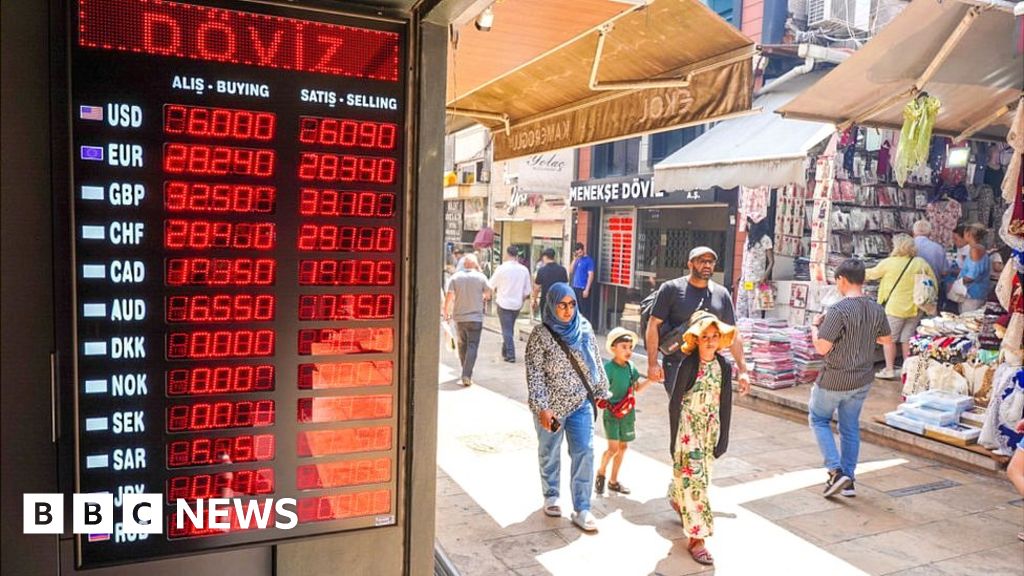Global Banks Try to Put a Number on Turkish Rate Hike This Month
(Bloomberg) — Economists at some of the biggest global banks are offering sharply different views of how Turkey will go about raising interest rates this month, a prospect that seemed remote before President Recep Tayyip Erdogan’s reelection just over a week ago.
Most Read from Bloomberg
Erdogan, a self-styled enemy of high borrowing costs, is remaking his economic team as Turkish assets come under strain following an inflation crisis caused in part by his fixation on ultra-low rates.
JPMorgan Chase & Co. and Barclays Plc now believe a hike of 16.5 percentage points will be on the table when policymakers meet this month, more than double what Societe Generale SA expects. Moves of that scale would be among the biggest by the Turkish central bank since at least 2010.
Beyond this month, international banks also present contrasting visions of what shape further monetary tightening could take.
Societe Generale’s Marek Drimal predicts two consecutive increases of five percentage points will follow a 650 basis-point move on June 22, bringing the benchmark to 25% in August from its current 8.5%.
For Ercan Erguzel at Barclays, the central bank could end up with its key rate at 35% in October. By comparison, JPMorgan is sticking with its end-year forecast of 30%, a view it first put forward months before the May elections.
“The first rate hike might be intended to close the gap between the policy rate and the average deposit rate,” Fatih Akcelik, JPMorgan’s Turkey economist, said in a report to clients.
The weighted average interest rate for deposits of up to three months has soared to a 20-year high of almost 34%, according to the latest data available.
What Bloomberg Economics Says…
“Simsek’s appointment doesn’t change our forecast for Turkey’s key policy lever, the one-week repo rate, to rise to 17% by year-end. That projection is unchanged because Simsek is the kind of market-friendly policymaker we had expected would take the role.”
— Selva Bahar Baziki, economist. Click here to read more.
Though Erdogan has yet to speak out in public on interest rates since the election, he’s been busy revamping his cabinet and picked former Merrill Lynch strategist Mehmet Simsek to return as treasury and finance minister.
In another sign that a pivot to orthodox economic policies could be in the cards, Hafize Gaye Erkan has emerged as a potential pick for the top job at the central bank after years spent working in finance in the US, including at Goldman Sachs Group Inc. and First Republic Bank.
Like Erdogan, the central bank’s current Governor Sahap Kavcioglu is a proponent of the belief that low interest rates can bring down inflation.
The views among economists align with expectations in the market, which was initially skeptical that Erdogan would tolerate a return to a more conventional approach. Derivatives used to bet on future borrowing costs are now pricing in an increase to around 15% in a month.
The Turkish central bank hasn’t lifted rates in over two years and gave no signal at its most recent meeting in May that a change in policy could be warranted.
Most Read from Bloomberg Businessweek
©2023 Bloomberg L.P.



